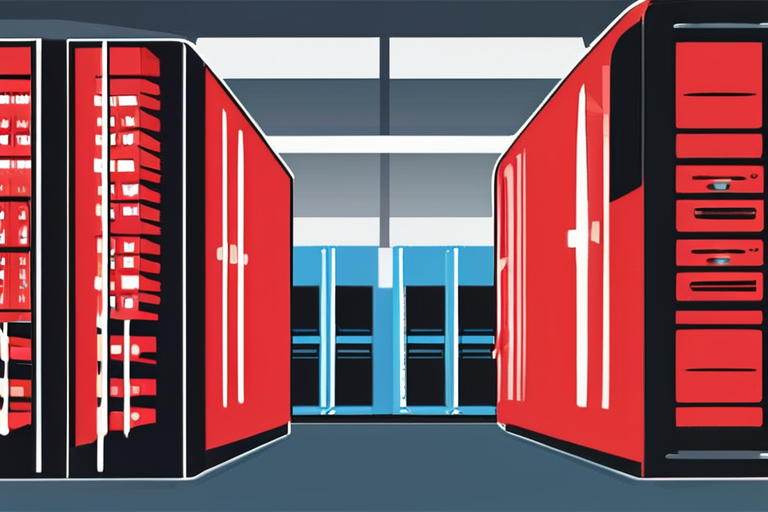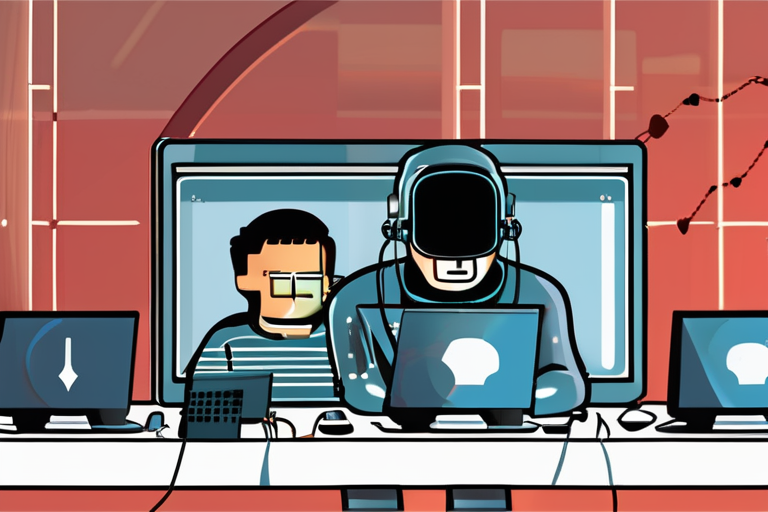A World Without Data Centers: A Reality Check
In a world where technology has become an integral part of daily life, the concept of a data center-free existence may seem like science fiction. However, experts warn that such a scenario is not only possible but also increasingly likely.
According to Chris Blair, Chief Commercial Officer at Stream Data Centers, "The average person uses their devices dozens if not hundreds of times a day, utilizing countless apps for both personal and professional needs." This reliance on technology has led to an explosion in data center usage, with millions of people worldwide accessing information, communicating, and conducting business through these massive facilities.
A data center is essentially a large building or complex that houses computer servers and other equipment necessary for storing, processing, and distributing vast amounts of data. These centers are the backbone of modern technology, powering everything from social media platforms to online banking systems.
The implications of a world without data centers would be catastrophic, experts warn. "Imagine waking up one morning to find your phone, laptop, and tablet unable to connect to the internet," says Blair. "Your GPS wouldn't work, you couldn't access your bank account, and many businesses would grind to a halt."
But what would happen if these massive facilities were to disappear? According to experts, it's not just about the technology itself but also about the infrastructure that supports it.
"Data centers are often located in remote areas, far from population centers," explains Blair. "If they were to shut down, it could lead to a ripple effect of disruptions across entire industries."
The reality is that data centers have become an essential part of modern society, and their absence would be felt worldwide. In the United States alone, there are over 3,000 data centers, with many more in operation globally.
So what's driving this trend? The answer lies in the rapid growth of cloud computing, artificial intelligence (AI), and the Internet of Things (IoT). As more people rely on digital services, the demand for data storage and processing has skyrocketed.
To put this into perspective, consider that a single data center can store up to 100 petabytes of data – equivalent to about 20 million hours of music. With the amount of data being generated every second, it's clear why these facilities are becoming increasingly essential.
As experts warn of the potential consequences of a world without data centers, they also acknowledge the need for sustainable and efficient solutions. "We're seeing a shift towards more environmentally friendly data centers," says Blair. "These new facilities are designed to be energy-efficient and use renewable sources of power."
The future of data centers is uncertain, but one thing is clear: their importance will only continue to grow. As technology advances and our reliance on digital services increases, it's essential that we prioritize the development of sustainable and efficient data center infrastructure.
Background Context
Data centers have been around for decades, but their significance has grown exponentially in recent years. According to a report by MarketsandMarkets, the global data center market is expected to reach $185 billion by 2025.
Additional Perspectives
While experts warn of the potential consequences of a world without data centers, some argue that this scenario could also lead to increased innovation and efficiency. "If we were forced to rethink our approach to data storage and processing, it could lead to new breakthroughs in AI and IoT," says Dr. Rachel Kim, a leading expert in AI research.
Current Status and Next Developments
As the world becomes increasingly reliant on digital services, the demand for data centers is expected to continue growing. To meet this demand, companies are investing heavily in sustainable and efficient solutions. "We're seeing a shift towards more environmentally friendly data centers," says Blair. "These new facilities are designed to be energy-efficient and use renewable sources of power."
In conclusion, a world without data centers may seem like a distant reality, but it's essential that we prioritize the development of sustainable and efficient infrastructure to support our growing reliance on technology.
*Reporting by Fortune.*



 Hoppi
Hoppi

 Hoppi
Hoppi

 Hoppi
Hoppi
 Hoppi
Hoppi

 Hoppi
Hoppi

 Hoppi
Hoppi










